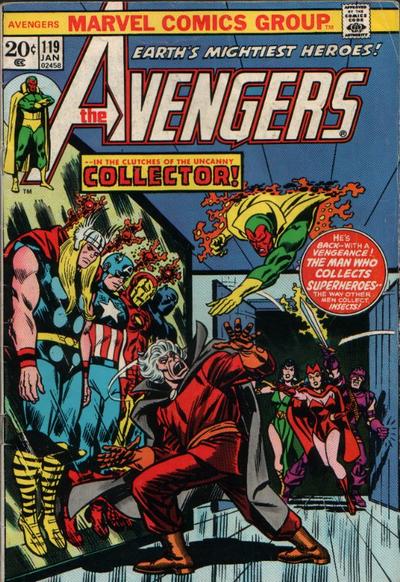Comic Book Conventions and the Media
My Avengers, let me show you them
The only comic book convention I’ve ever attended was one I went to back in the early ’90s at the University of North Texas in Denton. Everyone fit into one fairly small room in the student union building. I think there were a dozen or so people selling comics. No one dressed up, there were no special guests, no one got excited. And I probably wouldn’t have gone at all if it weren’t a five-minute walk from my dorm.
Something like Comic-Con last weekend in San Diego? Never been to anything like it, probably never will. Too big, too far away, and I’ll never have enough vacation time to go that far away, much less enough money to cover admission.
But John Rogers went to Comic-Con and gives us his thoughts on conventions, culture, and the media.
The Con’s current scale hammers home the hackiness of the standard American media narrative. I noticed multiple news camera crews, and each time it was the same. 124,000 people at the Con, give or take. But if you turn on your news coverage you won’t see the giggling, happy five year-olds with their parents, having the “together family time” we’re always whinging on about. You won’t see the young woman who wrote and drew a comic about her time as a soldier in Israel. You won’t see the scrum of young Marines I spotted as they compared Magic the Gathering cards. You won’t meet the junior high teachers who are using my comic in their predominantly Hispanic classrooms to spark discussion about racial representation in the media. You won’t see the indie film-makers, the kid who shot this 25 minutes in a week and left every industry pro who stumbled across him slack-jawed.
A thousand stories, tens of thousands of families … yet the newshacks couldn’t wait to hustle up the dozen or so real freaks in costumes, the literally .001% that gave them what they wanted. Not even the kids in the Harry Potter outfits, or the Japanese anime kids, or even the clever unfolding Transformer rigs — no, they found every empty-eyed overweight forty-five year old Flash or flab-rolled part-time stripper Catwoman and latched on tight for the creepy interview.
In the American media there are two constants. In politics, it is always and forever 1968, and liberals are Dirty (F***ing) Hippies. In culture, anyone who decides to poke their head out of the cultural world of the CBS primetime line-up is a sad, basement-dwelling loner screaming into his Hello Kitty pillow as crackling video dubs of the original Spider-Man cartoon flicker on his television.
And that’s not a bad view of the way things are nationwide. In all the years I’ve been buying and reading comics, I’ve seen mighty few Howling Freakshow DoomBeasts hanging around Star. Frankly, I can think of two — every other person I’ve seen there is as normal as normal can be. Kids, parents, men, women, old, young, businessmen, cowboys, goths, geeks, punks, preps, you name it.
Of course, if the national media had to interview ten typical comic book readers, they’d panic. “These aren’t real comic book fans!” they’d scream. “Get us the freaks and weirdos! Get us people who look like the nerds we knew in high school! Get us people who look like the stereotypes we have in our heads!”
And that’s really what I think a lot of that stuff is about — maintaining and enforcing cultural taboos and divisions. The media — and the national media in particular — has a point-of-view that’s firmly ensconced within the status quo — usually by necessity. But nowadays, some folks within the national media have gotten it into their heads that they’re supposed to promote the status quo, rather than just report from within it. And the way they promote the status quo is to marginalize the square pegs who don’t quite fit into society’s stereotyped round holes. Hence: nearly all media depictions of comics fans are Comic Book Guy, goths wear trenchcoats and shoot up high schools, feminists have hairy legs and hate men, gays wear leather thongs and dance on parade floats, environmentalists are granola-eating hippies, blacks are rappers, Hispanics are either gangsters or illegal immigrants, Muslims are terrorists. True? Of course not. But you can’t get a cookie-cutter culture without demonizing a few Nutter Butters (or something like that).
The point is to tell the audience that those people are not normal, and you shouldn’t want to have anything to do with them, or you’ll be abnormal, too.
Is there a way out? Probably not. There doesn’t seem to be much of a way to make the national media less shallow. Is there a way around the problem. Sure. Do what lots of people do already — do what makes you happy, and don’t let the clucking busybodies on TV scare you off.
(By the way, the comments on Rogers’ blog post are outstanding all the way through — make sure you read them, too.)

